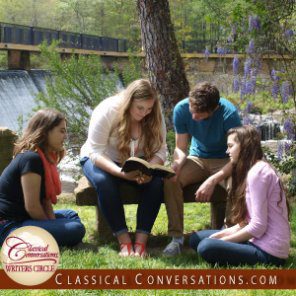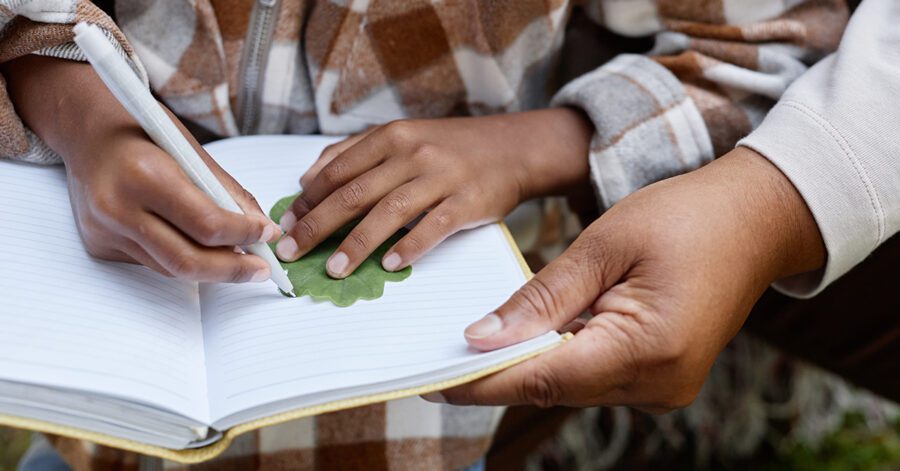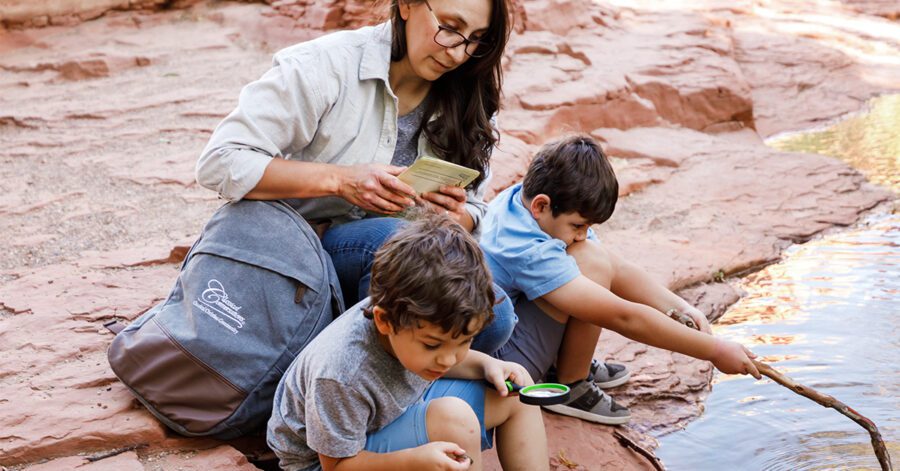In the light of current events, I am certain of one thing: we need heroes. As parents, we cannot allow fear to rule our lives; on the contrary, we should prepare our children to act nobly and to do the right thing in unusual circumstances, because one thing is certain: we live in uncertain times. This summer, there are a few important activities you can do to begin your child’s hero education.
1. Read aloud great adventures of heroes. The Hobbit and the Narnia series are great family reading choices for summer; read them aloud. Give your children stories so that they will remember the heroes’ great and wondrous deeds so that these stories stay in their hearts and souls and are recalled in moments when courage is needed. These stories provide good hero role models, and they should inspire us to undertake great and wondrous things so that stories may be told about us someday.
2. Watch clouds and count the legs of centipedes. A hero needs to learn to give attention to details. They need to notice what is going on around them. Give your children time outdoors to ponder God’s creation. Children should lie in the grass and watch the clouds, count the legs of centipedes to see if they really have 100 legs, or gaze at the stars to see whether or not they actually travel across the sky. We tell them these things, or they read about them in books, but it is so much more wondrous to see them and, perhaps, discover them yourself. This teaches the children to observe the details of life around them. They need time for this. Do not spend your summer rushing from activity to activity, no matter how good all the activities sound. Being busy all the time does not allow your children time to think. You also need to unplug them from their electronics so they will go outside and notice the little things. (If this is new, expect complaining at first, but be firm. Tell them, “Either go outside, or clean the bathroom.” They will probably go outside.)
3. Encourage handicrafts. I like the old-fashioned word, “handicrafts” because it means creating something new rather than putting together a craft from the mega-craft store. The craft kits teach following directions which is a good thing to know, but I feel certain your children receive ample instruction in this area. Heroes do not get to be heroes by simply following directions; they are heroes because they can figure out new things. Try to find a project which allows them to create something entirely their own: carving, crocheting, jewelry making, building forts out of sticks, whittling, or drawing. It took several tries to find things my children were interested in, but they have each discovered creative things they enjoy. My son taught himself to play the ukulele and when he expressed interest in playing the guitar, I offered to find a teacher. He said, “No way! That would take all the fun out of figuring it out myself!” Classically educated children say things like that. It is because we believe they can and we expect them to. Heroes can teach themselves anything and probably carve a flute out of bamboo for you at the same time.
4. Another way to teach your hero to “figure things out” is to use actual figures—math. You do not have to use a workbook. Play math games and your child will learn to figure things out in their head. They will learn to solve problems in new and creative ways. That is what heroes do. Leigh Bortins filmed some math games that will help you get started. Make your own variations of the games and include the whole family. You may learn to play some good math games at a Parent Practicum this summer, too.
There are many more activities you can do this summer to raise heroes: let them plant watermelons and tomatoes and watch them grow, travel with your children, backpack and camp, let them have all kinds of pets, and develop relationships with heroes, real and fictional. Spend time discussing current events and literature, and always ask the questions, “What should he have done?” “What is the right thing to do?” “How do we love our neighbor?”
All these things are part of a classical Christian education which is sometimes called, “Leadership Education” (e.g., Oliver DeMille in A Thomas Jefferson Education). I have offered some fun options to utilize during summer. If I have not yet convinced you that this will work, read Ten Ways to Destroy the Imagination of Your Child by Anthony Esolen. (Free to parents who have registered a student in a Classical Conversations Practicum Student Camp. Pick up your copy at the Practicum sign in.)
This summer, use your precious time to help your child develop his or her imagination and problem solving skills, and let’s aim not for a common education which comes scripted in a workbook; rather, let’s aim for hero education.




